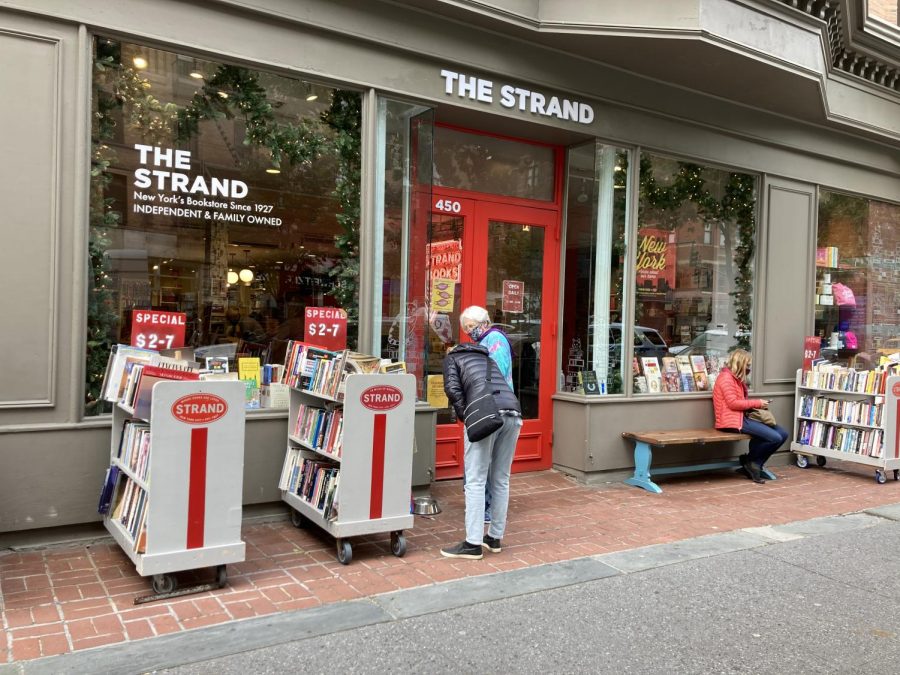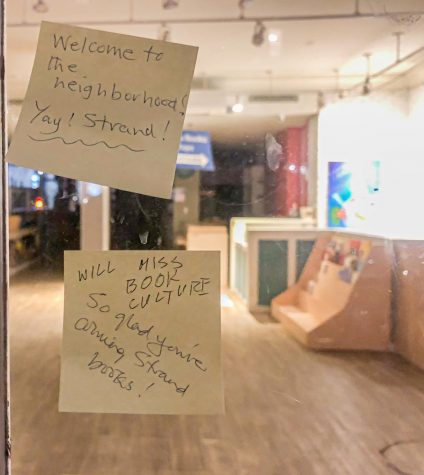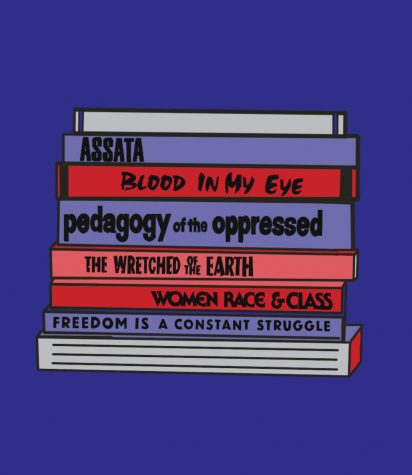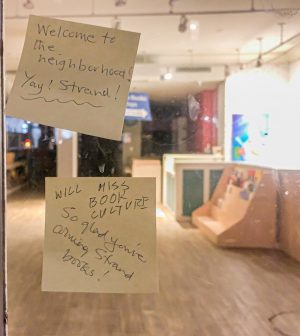The Strand Is Not the Best Indie Bookstore to Support in NYC
The Strand recently opened a second location on Columbus Avenue between 81st and 82nd Streets.
November 13, 2020
The Strand is perhaps one of the most iconic bookstores in the whole of New York City. It has been a neighborhood staple since its founding by Benjamin Bass in 1927. The store’s current location on 12th Street and Broadway has been a fixture in the area for decades. As one of the last standing bookstores from the historical Book Row, it has great historic and sentimental value for many New Yorkers. Trying times have led the establishment to lean into its customers’ nostalgia to garner financial support. In light of some of the Strand’s recent practices, supporting the store is a controversial choice.
The ongoing coronavirus pandemic has taken its toll on many small businesses and, according to current owner Nancy Bass Wyden, the Strand is one of them. On Oct. 23, Wyden issued a statement asking for the public’s support. In response, the public showed up in masses to purchase books from the store in person and online, giving the store $170,550 in sales in one weekend.
For many bookstore owners, the money that they generate from their businesses is the only money they have at their disposal to ensure that their company survives. Wyden is a millionaire.
Wyden told CNN, “When I meet people, they always have a heartwarming story about the magical time they first found a book or went on a first date at the Strand, so I felt like I knew the Strand touches people.” An important question to be raised is: Does historical and personal nostalgia warrant support in the present? Instead of continuing to blindly support an institution that has sentimental value, we should examine whether or not the Strand and Wyden have earned our support.
Wyden said that the store’s revenue has gone down 70%. The enormous loss in revenue, in addition to the general stress that independent bookstores have faced from big box bookstores like Barnes & Noble and major corporations like Amazon, has apparently led the Strand to its dire situation.
The pandemic slowed business down so much that in March the store temporarily laid off 188 of its current 212 employees. In July, the company rehired 33 employees; however, 12 more union employees were laid off again shortly thereafter. Some have begun to criticise Wyden for these practices in light of the $1-2 million Paycheck Protection Program loan she accepted in April to ensure those 212 jobs were protected.
If this loan did not protect these jobs, then where did the money go? The criticism from Wyden’s employees does not only stem around their employment but also extends to their working conditions.
The limited staff has left the retained workers both overworked and, according to union worker Will Bobrowski, underprotected. Bobrowski told The Baffler, “When the store reopened, we didn’t have enough PPE and cleaning equipment … [Wyden] did not want to spend money on anything—she was blocking ordering acrylics, bottles of hand sanitizer, boxes of masks.”
The Strand’s owner continues to demonstrate a disregard for her employees’ safety and well-being in favor of her own personal wealth.
If the goal of her purchases was to further support her store, would that money not have been better served going directly to those who work in it — the some 100 employees who have been laid off — instead of a company whose success is a direct threat to Wyden’s own business?
For many bookstore owners, the money that they generate from their businesses is the only money they have at their disposal to ensure that their company survives. Wyden is a millionaire.
Her wealth comes from assets left to her from both her father and grandfather, with the former leaving behind a $25 million estate after his death in 2018. She has at least $8.5 million in assets. Since April she has purchased approximately $3 million in stock. Upwards of $150,000 of that money was spent on stock in Amazon. This particular purchase hit close to home for her staff, seeing as Amazon is a direct competitor to the bookstore — one that Wyden herself has criticized publicly.
If the goal of her purchases was to further support her store, would that money not have been better served going directly to those who work in it — the some 100 employees who have been laid off — instead of a company whose success is a direct threat to Wyden’s own business? Wyden said that she will continue to “pull out all the stops to keep sharing our mutual love of the printed word.” From the viewpoint of her employees, the only thing she seems to be pulling out is the rug from underneath them — in the middle of a pandemic.
There is no doubt that independent bookstores deserve our collective patronage and increased support during these trying times. Bookstores offer sources of innovation and inspiration that can be invaluable to their communities. Many work on social projects and improve the lives of their customers not only in a literary sense, but also in a structural one. These initiatives benefit and uplift both the stores themselves and the communities they serve. When picking an indie bookstore to support during these hard times, make sure that it is one that deserves your patronage.
It is worth it to remember that while the Strand is arguably the most popular independent bookstore in the city, it is nowhere near the only one. To find other bookstores in your area to support, visit Bookshop, an independent bookstore locator — just type in your location and a list of stores pops up.
We must not forget that there are other bookstores that need our support during this time. If you are looking to support indie bookstores, then your patronage should not begin and end at this store. Make sure that those you are supporting are dedicated to supporting others as well.




















